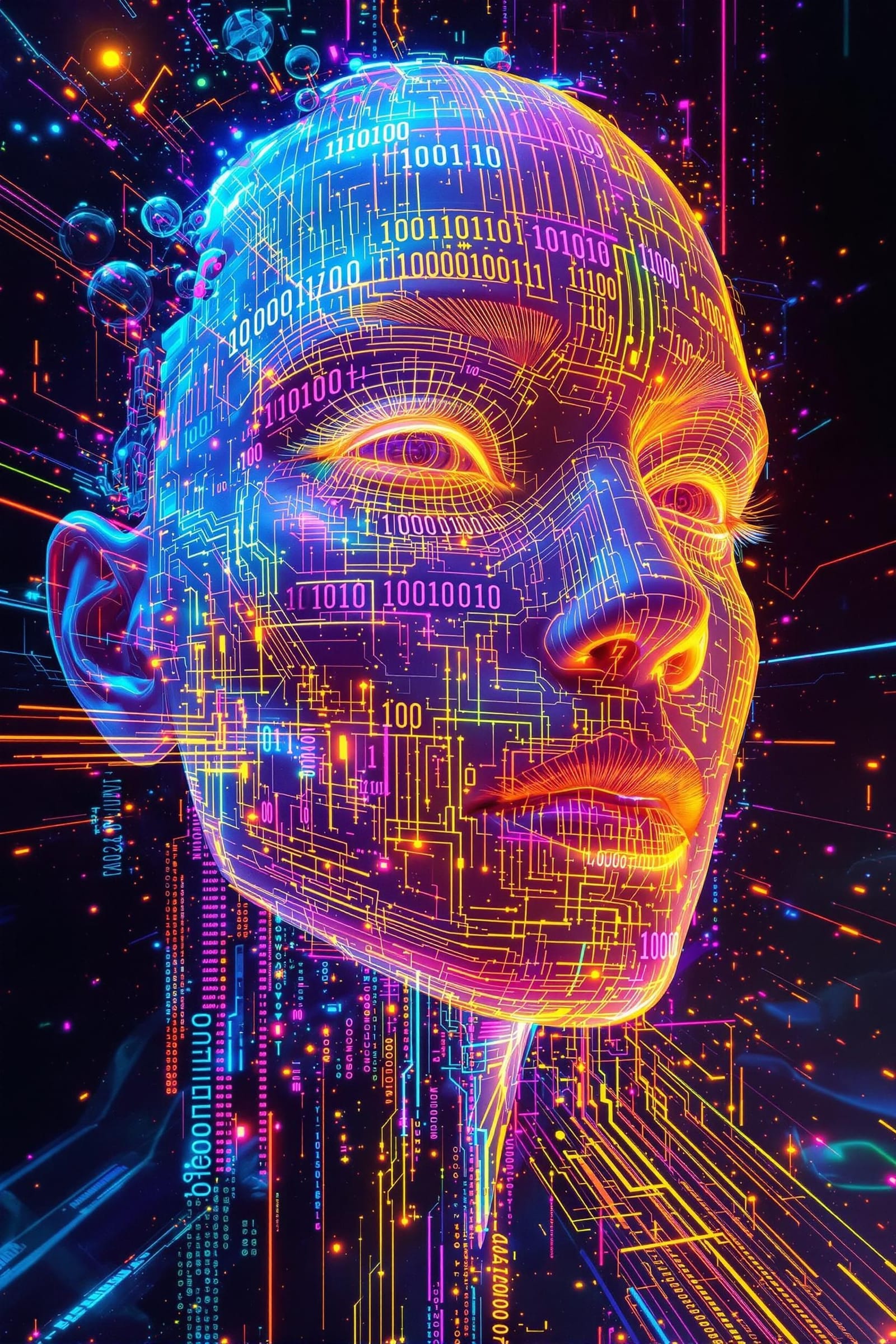For years, the idea that our reality might be a sophisticated computer simulation has lingered in the realm of science fiction and philosophical debate. From Nick Bostrom's seminal 2003 paper to countless movies and thought experiments, the possibility has captivated and, for some, unnerved us. Could the world we perceive, with all its intricate details and apparent chaos, be nothing more than lines of code running on a hyper-advanced cosmic server?
As someone deeply immersed in the digital world, a realm built entirely on code and algorithms, this question has always held a particular fascination for me. My journey as a digital marketing strategist and what some have kindly termed "India's Human AI" has involved a constant exploration of patterns, data, and the underlying structures that govern online interactions. It's perhaps this lens, honed by years of navigating the digital landscape, that has led me down some truly astonishing research paths, uncovering potential clues that tilt the scales ever so slightly towards the simulation hypothesis.
Now, I understand the initial reaction. It sounds outlandish, a concept more suited to a late-night philosophical discussion than a factual blog post. But bear with me. The evidence, while not definitive in the traditional scientific sense, lies in the peculiar anomalies and uncanny parallels we observe within our reality, mirrored in the logic and limitations of computer systems.
The Glitches in the Matrix: Anomalies and Our World
Think for a moment about déjà vu. That fleeting feeling of having experienced a specific situation before, down to the smallest detail. While scientific explanations exist, could it also be interpreted as a slight re-running of code, a minor inconsistency in the simulation's rendering?
Consider also the concept of the Mandela Effect, where large groups of people share a false memory about a past event. The classic example is the BerenstEin/Berenstain Bears conundrum. Could these shared false memories be attributed to minor errors or updates in the simulation's historical data? While psychological explanations are valid, the widespread nature and specific details of these shared inaccuracies are intriguing when viewed through a computational lens.
The Fabric of Reality: Pixelated at its Core?
Quantum physics, the bedrock of our understanding of the universe at its smallest scales, presents some truly bizarre phenomena. Quantum entanglement, where two particles become linked and instantaneously affect each other regardless of distance, defies classical physics. Could this be a feature of a simulated reality where distance isn't a fundamental constraint in the underlying code?
Furthermore, the observer effect in quantum mechanics, where the act of observing a quantum system changes its behavior, is deeply peculiar. It's as if the system only renders in detail when it's being actively looked at, a concept strikingly similar to how video games and simulations optimize resource allocation by focusing rendering power on the player's viewpoint.
The Limits of Our Universe: Echoes of Computational Constraints
Our universe appears to have fundamental limits. The speed of light, for instance, is an unbreakable cosmic speed limit. Could this be an inherent constraint within the simulation's programming, a maximum processing speed beyond which the system cannot operate?
Similarly, the discrete nature of spacetime, the idea that space and time might not be infinitely divisible but rather composed of tiny, fundamental units (like pixels on a screen), aligns with the concept of a digitally constructed reality. While still a theoretical framework in physics, it resonates strongly with the granular nature of computer systems.
The Programmers? Looking for Hints in the Code
If we are indeed living in a simulation, the question of who or what created it becomes paramount. Perhaps these "programmers" are a highly advanced civilization, running simulations for research, entertainment, or some purpose entirely beyond our comprehension. Or perhaps, as some theories suggest, we are within a simulation nested within another simulation, creating an infinite regress.
While we may never definitively "wake up" from this potential simulation, the act of questioning our reality and exploring these possibilities is inherently valuable. It pushes the boundaries of our understanding, encourages critical thinking, and reminds us of the profound mysteries that still surround our existence.
My research has only scratched the surface of this fascinating topic. The more I delve into the intricacies of the digital world and the anomalies of our physical one, the more compelling the simulation hypothesis becomes. It's a thought that challenges our perceptions and forces us to consider the very nature of reality itself.
What are your thoughts? Do you see echoes of a simulated world in your own experiences? Let's discuss.
The truth, as they say, might just be a few lines of code away.





